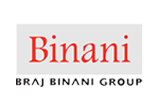Indonesia Import Data
04-Jan-2024

With its booming economy and rapid modernization, Indonesia has become a hotspot for companies wishing to participate in the import and export of electrical equipment and technology. As the need for cutting-edge technology and infrastructure development grows, so does the need for dependable importers. In this blog, we will guide you through the process of finding reliable partners in Indonesia to ensure the smooth and successful importation of electrical equipment and machinery. Along with this, we provide updated electrical machinery import data and accurate Indonesia import statistics.
Before delving into the market insights for electrical machinery importers, it is critical to first understand the Indonesian electrical machinery market.
Electrical materials are critical components used in electrical systems and applications to ensure safe and efficient operation. They include a wide range of devices that are solely intended for electrical use. Between 2020 and 2026, the Indonesian electrical equipment market is projected to develop at a CAGR of roughly 6.7%.
This can be defined as the government's increasing investments in infrastructure projects, rising demand for power, rising population, and increased industrialization in the country. Smart grid development and technical advances are also contributing to the growth of this market.
This remarkable growth potential is being driven by two distinct but closely connected segments: electrical equipment and electrical materials. The former includes the industry's engines - transformers, switchgear, and generators - and is expected to grow steadily at a CAGR of 6.7%.
According to the Electrical Machinery Importers database, Indonesia's imports of electrical machinery and equipment (including sound recorders and related accessories) totaled US$26.4 billion in 2022.
Based on Indonesia import data, Indonesia imported $237.4 billion in global commodities in 2022, a 25.8% rise from $188.7 billion in 2018. According to Indonesia trade data, the overall cost of Indonesian imports climbed by 21.3% year on year, from $195.7 billion in 2021 to $195.7 billion in 2022.
Based on electrical machinery import data, Indonesia's imports in 2022-23 were valued at US$285.125 billion, a 25.3% increase over the previous year. The top three import goods were as follows:
Machinery and equipment (26.3%)
Chemicals (11.7 percent of total)
Mineral fuels, lubricants, and associated materials (11.4%)
The top product categories include:
Electrical apparatus for line telephony or line telegraphy (including cordless phones and communications apparatus) contributed almost 24% of total imports, totaling $6.42 billion.
Electronic integrated circuits and microassemblies came in second at 14.9%, worth $3.95 billion.
Trade Partners:
According to electrical machinery import data, China remained the largest supplier, accounting for over 43% of Indonesia's electrical machinery imports in 2021.
Based on Indonesia trade data, Singapore, Japan, South Korea, and Vietnam are other key suppliers.
However, several obstacles remain. The reliance on foreign imports for more complicated machinery and components presents a challenge. There are several opportunities for traders to analyze machine parts importer data from the best source, like Indonesiatradedata.com. Here, you can obtain the Electrical Machinery HS code, Electrical Machinery import data, and much more.
There are several ways to find electrical machinery importers in Indonesia. Here, we discuss the best methods
Thorough research is essential to identifying reliable importers. Start with an understanding of Indonesian market trends, electrical machinery import data, and trade activities in the electrical equipment and machinery industry. Investigate supplier details and HS codes to learn more about market dynamics.
Participating in business events and networking with industry people is a good strategy to locate trustworthy importers. Trade shows, exhibits, and business conferences devoted to electrical equipment and machinery provide good opportunities to meet possible partners. These events offer the chance to network, assess the legitimacy of imports, and obtain firsthand knowledge of the market.
The digital era has changed the way businesses are done, and online platforms play an important role in connecting firms worldwide. To find reliable machine parts importers in Indonesia, use platforms like IndonesiaTradeData.com and Seair Exim Solutions. These platforms provide the global market report for 100+ nations.
Engaging with local chambers of commerce and business associations in Indonesia is another useful method for locating trustworthy imports. These organizations frequently have a network of trustworthy firms and can make important suggestions based on the track records of their members. Connecting with these local groups can also assist in navigating the regulatory landscape and comprehending the complexities of conducting business in Indonesia.
Ensure that the selected importers follow all applicable laws and industry standards. Examine applicable certifications, licences, and quality control requirements. Understanding the regulatory environment will not only protect your company but will also aid in a seamless and lawful import procedure.
Finding reputable electrical equipment and machinery importers in Indonesia involves extensive study, networking, and due diligence. Businesses may traverse the Indonesian market with confidence by researching the market, exploiting online platforms, engaging in industry events, and developing strong relationships.
In this dynamic and evolving market, a well-informed and strategic approach will not only lead to successful importation. Still, it will also pave the path for long-term, mutually beneficial partnerships. Suppose you are a merchant looking for trustworthy electrical machinery import data from Indonesia or Indonesian import export data. In that case, connect with IndonesiaTradeData.com and analyze the most recent export-import data. Click here to book a free live demo.
Finding trustworthy importers in Indonesia needs extensive research and due diligence. You can take the following steps:
Use online directories: Platforms such as the Indonesian Chamber of Commerce and Industry (KADIN) and IndonesiaTradeData.com identify electrical machinery importers.
Attend tradeshows and conferences. Network with possible partners at industry-specific events in Indonesia or abroad.
Partner with a trade promotion agency: The Indonesian Trade Promotion Centre (ITPC) can help you connect with suitable importers.
Check the import registrations: Check whether the importer is registered with the Indonesian Ministry of Trade.
Experience and expertise: Look for importers who have successfully handled your specific sort of electrical equipment or machinery.
Distribution network and market reach: Select an importer that has established contacts with Indonesian retailers, wholesalers, and end consumers.
Financial capabilities: Make sure the importer has the funds to acquire and distribute your items properly.
Regulatory knowledge: Choose an importer who is aware of Indonesian import rules, such as licencing procedures and HS codes (for example, HS code 8501 for electric motors).
Power generation equipment includes generators, transformers, switchgear, and other components.
Industrial machinery includes electric motors, pumps, compressors, and machine tools.
Consumer electronics include household appliances, televisions, smartphones, and other electronic devices.
Telecommunications equipment includes switches, routers, cables, and other infrastructure components.
Medical equipment includes diagnostic and therapeutic devices such as X-ray machines and MRI scanners.
Complex import regulations: Navigating Indonesia's import licensing requirements and HS code classifications can be complex.
Logistics and infrastructure challenges: Efficiently transporting and storing electrical equipment and machinery within Indonesia can be challenging.
Lack of Market Information: Traders face challenges while addressing the global trade market. The traders need to obtain machine parts importer data, electrical machinery HS codes, and much more.
By addressing these challenges and conducting thorough due diligence, you can successfully identify reliable importers and navigate the Indonesian market for your electrical equipment and machinery.










